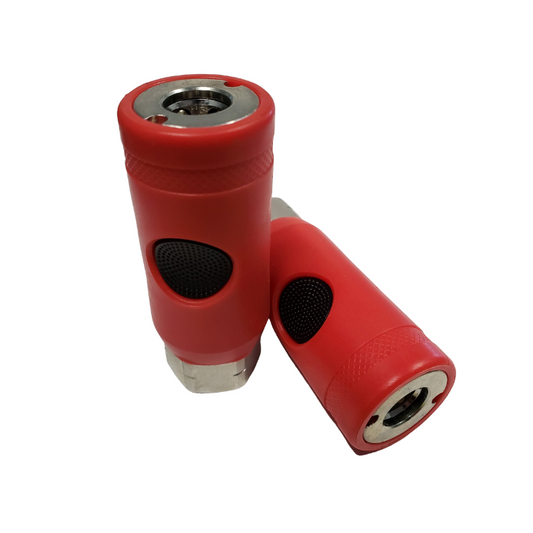-
Lever Grease Gun with Rigid Exension
Prix habituel $14.99 USDPrix habituelPrix unitaire / par -
AIR COUPLER FEMALE PUSH-BUTTON
Prix habituel $11.99 USDPrix habituelPrix unitaire / par
Mr Grease Gun FAQs
Contenu réductible
1. What types of grease guns are available?
The main types of grease guns include manual (hand-operated), pneumatic (air-powered), and battery-powered models. Manual grease guns are the most common and economical, while pneumatic and battery-powered guns are better suited for high-volume or continuous greasing applications.
2. How do I choose the right grease for my application?
The type of grease to use depends on factors such as operating temperatures, load conditions, speed, and the equipment manufacturer's recommendations. Common grease types include lithium, calcium, polyurea, and synthetic greases, each with their own properties and applications.
3. How often should I grease my equipment?
Greasing intervals vary depending on the equipment, operating conditions, and manufacturer's recommendations. Generally, frequent greasing is required for heavily loaded or high-speed components, while less frequent greasing is needed for lightly loaded or slow-moving parts.
4. How do I properly grease a fitting?
First, clean the grease fitting and surrounding area to remove any dirt or debris. Next, attach the grease gun coupler to the fitting and pump grease until new grease is visible purging from the bearing or component. Finally, wipe away any excess grease.
5. Can I use too much grease?
Yes, over-greasing can be just as harmful as under-greasing. Excessive grease can cause seals to fail, increase friction and heat buildup, and potentially damage components. Always follow the manufacturer's recommended grease quantities.
6. How do I maintain my grease gun?
Proper maintenance includes cleaning the grease gun after use, checking for any leaks or damage, and storing it in a clean, dry place. Regular lubrication of the gun's internal components may also be necessary.
7. Can I use the same grease gun for different types of grease?
It's generally recommended to dedicate a grease gun to a specific type of grease to avoid cross-contamination and compatibility issues. However, if the gun is thoroughly cleaned and purged, it can be used with different compatible greases.
8. How do I identify grease fittings?Grease fittings, also known as zerk fittings or grease nipples, are typically identified by their distinctive shape and size. Common types include straight, angled, button-head, and flush mount fittings.
Grease fittings, also known as zerk fittings or grease nipples, are typically identified by their distinctive shape and size. Common types include straight, angled, button-head, and flush mount fittings.
How do I identify grease fittings?
Grease fittings, also known as zerk fittings or grease nipples, are typically identified by their distinctive shape and size. Common types include straight, angled, button-head, and flush mount fittings.
9. What safety precautions should I take when using a grease gun?
Wear appropriate personal protective equipment (PPE) like safety glasses and gloves, avoiding skin contact with grease, and secure your equipment before greasing to prevent accidental movement.


